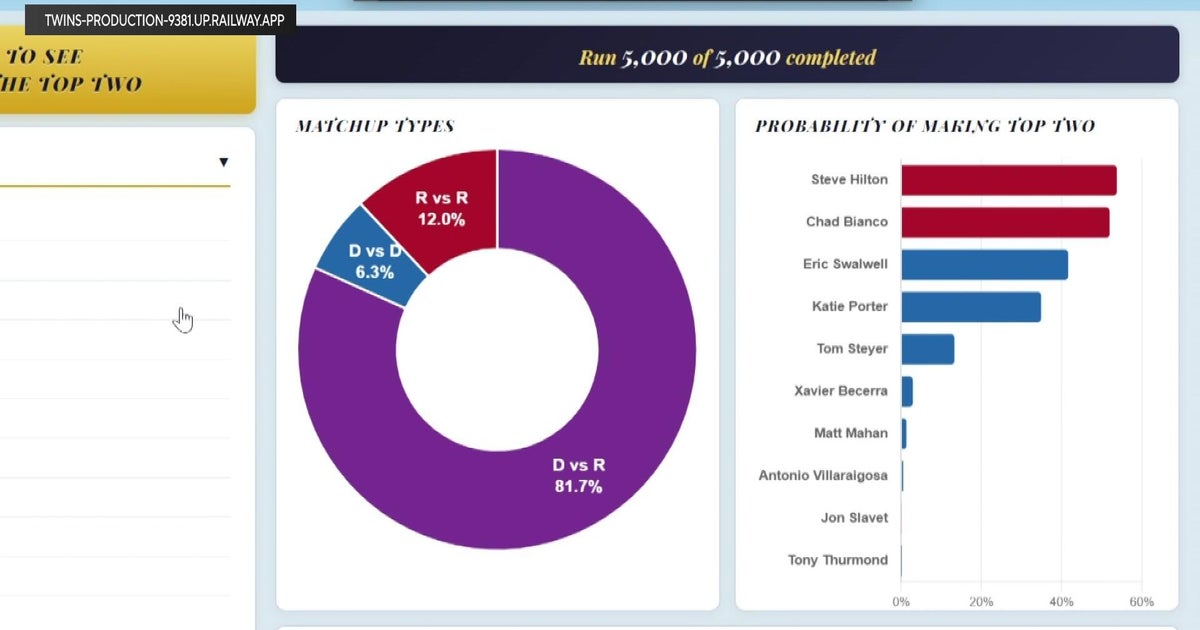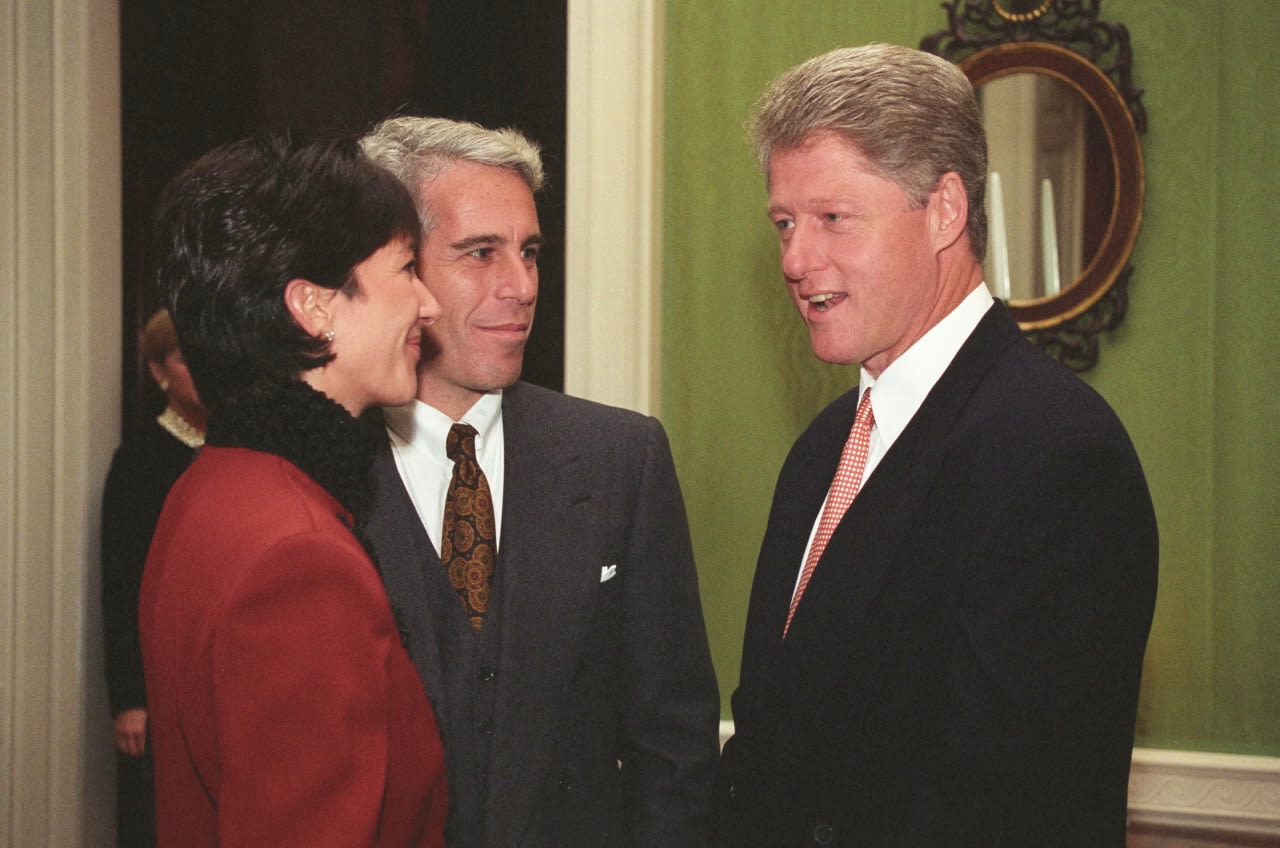Transcript: OMB Director Mick Mulvaney on "Face the Nation," Oct. 22, 2017
A Republican-crafted budget passing a Republican-majority Senate isn't ordinarily a huge story, but Thursday night's 51-49 vote meant that President Trump's tax-reform framework cleared the first of what's sure to be many hurdles before possibly becoming law.
"Face the Nation" sat down on Sunday with the White House budget director, Mick Mulvaney, to discuss the Republican budget and tax reform plans. He was a big critic of debt and deficits when he was in Congress – as are a number of congressional supporters of the tax framework. What's changed?
What follows is a transcript of the interview with Mulvaney, which airs Sunday, Oct. 22, 2017, on "Face the Nation."
JOHN DICKERSON: Joining us now the White House director of the Office of Management and Budget, Mick Mulvaney. Welcome Mr. Director. Let's start with the budget. A budget passed out of the Senate this week, setting the stage for tax cuts. But that budget does not achieve balance. That's something you wanted as a congressman. So why doesn't it achieve balance? And why isn't that a big problem?
MICK MULVANEY: I think we've made a decision now within the administration that plan A or part of plan A, which was to try and cut our way to balance, just wasn't going to get very far in Washington D.C. We had offered $54 billion worth of discretionary cuts in our budget back in March. Only about 4 or 5 billion have survived so far on the hill. We're not going to be able to cut our way to balance.
So the next part of the plan, next part of the sort of calculus, right, deficits are revenues less expenditures, is to focus on the revenues. How do we get government revenues up? The way that we balanced the budget, John, back in the 1990's was- was fiscal restraint. Slower growth in government plus huge economic growth that drove wealth for families but also drove receipts to the government.
JOHN DICKERSON: Let me go back to that spending question though. Republicans for a long time have talked about spending restraint. And so to now say, "Well, we're going to do it through growth," that's a big- that's no small deal. It's like Weight Watchers saying, "Well, we're going to give up the dieting part."
MICK MULVANEY: Well, you're not giving up entirely on spending. It's just you have to sit there and go, "Okay, there's two parts to this equation." There isn't the political will on the hill right now to--
JOHN DICKERSON: Why not? You're in charge. Republicans are in charge. They've run on this for so long. Why no will?
MICK MULVANEY: It's difficult I think to cut spending in Washington. It really, really is.
JOHN DICKERSON: But is it lack of will of the members, lobbyists, constituents? What's the--?
MICK MULVANEY: There's all of the above. It really is. Washington is designed to spend more money. Probably too deep in the weeds for this show. But the 1974 Budget Act, which drives everything that we do, every dollar that we spend, is designed to spend more money one year from the next. That's the bill that says if you spend $100 last year and $104 this year we call it a cut. I'm not making that up. So the law really is set up to spend more money. It's hard to get out of that cycle.
JOHN DICKERSON: Well, here's why I ask. Because there's a lot of questions about outsider and insiders. And what sometimes happens is people hear an outsider say, "We got to do this, that, and the other thing." Then they become an insider. And they realize either through expediency or maybe things are just more complicated than they thought, that they don't follow up with what they said when they were campaigning. That disconnect has led to serious splits in political parties. And it's happening in the Republican Party. So why would somebody looking at this from the outside say, "Well, now they're in power. They're just doing the easy thing"?
MICK MULVANEY: Listen. You've got bigger issues than just spending that fall into that category. You've got Republicans who have promised to repeal and replace Obamacare. They haven't done that yet on the hill. You've got Republicans who have promised to do tax reform. Now, we had a huge step in that direction this week. And I think we're making a lot of progress on it. But we haven't done that yet.
There's a lot of things we haven't followed through on on a party. You've seen the president act with a great deal of frustration in reaction to that. You've seen a lot of frustration back home with people from that. So, yeah, absolutely. We have to start keeping our promises. But passing this budget this week, which is the next step and an absolutely critical step to get tax reform, was a big step forward in keeping that promise.
JOHN DICKERSON: Let's talk about taxes. There was a framework released. It included removing the deductibility for state and local.
MICK MULVANEY: Right.
JOHN DICKERSON: Now there seems to be some wobbling on that. What's the status of removing that as a deduction?
MICK MULVANEY: I hope they don't wobble. Keep in mind what the president wants here, John, is something that is simpler, better, and fair. And this is one of those issues that goes right to the fairness issue. If you and I make the same amount of money, we live in a house that has the same value, our car is the same car, shouldn't we pay the exact same amount in federal taxes? We should. That's fair. But if you live in New York--
JOHN DICKERSON: No matter where you live?
MICK MULVANEY: --and I live in South Carolina, I actually pay more in federal tax than you do. And that's not fair. And we hope that that does remain part of the process.
JOHN DICKERSON: Although--Well, let's, let's tick off a couple other things that have been discussed. What's the status of the carried interest loophole? This is a tax treatment that helps hedge fund managers. The president called it--said they were getting away with murder when he was a candidate. It wasn't in the framework. Where is it now?
MICK MULVANEY: Keep in mind the stuff that wasn't in the framework is stuff that we weren't able to sort of come to general agreement on with the House and the Senate leadership going into the more detailed discussions, which we'll start now. So that's why the framework was still very important, because we did have agreement on the basic rates, on, on corporate reductions, on reform, and so forth.
So it's not in the framework. It means, "Well, let's--we're going to put that aside to discuss later." And later is now. But I will confirm to you the president still believes that the carried interest is probably something that needs to be looked at very, very closely.
JOHN DICKERSON: Because you talked about fairness. And the president as a candidate went right to that fairness argument and said, "They're getting away with murder, and the middle class is getting nothing." Why not just say, "This must be in tax reform"?
MICK MULVANEY: I think if it was up to president, you probably would. But, again, we have to work with the Senate and the House--
JOHN DICKERSON: He's not shy about saying what he wants. Why be mumbly on this one?
MICK MULVANEY: We've been very careful here now to make sure that we are focusing on what we agree on as we released that framework, okay? So the things that we agreed go in the framework. Things that aren't agreed to in advance, they go in committee. And that's the process that starts next week.
JOHN DICKERSON: Final question. Bipartisan health reform. The president seemed to be supporting the Alexander-Murray. Now he says he's not. What's the status of that?
MICK MULVANEY: And I saw the first statement, talked to the president about it. He's where he has been from the very beginning on CSRs, which is, "I want to get a deal. I don't want to give this money to insurance companies. I don't want to give money to these CEOs who make tens of millions of dollars."
JOHN DICKERSON: But the bill's written in a way that won't give it to them.
MICK MULVANEY: It is. He doesn't want to do any of that without also getting something for folks who are being hurt. And I think the criticisms you've heard this week are like, "Look, I'm okay with doing a deal." This is the president now." "But I'm not getting enough for the folks who are getting hurt. So give me more by way of associated health plans. Give me more of the things that we know we can do for folks back home to actually help them." I think there's actually a pretty good chance to get a deal. It's just Murray-Alexander in its current form probably isn't far enough yet.
JOHN DICKERSON: All right. We'll have to leave it there, Mr. Director. Thank you so much. And we'll be back in a moment.



